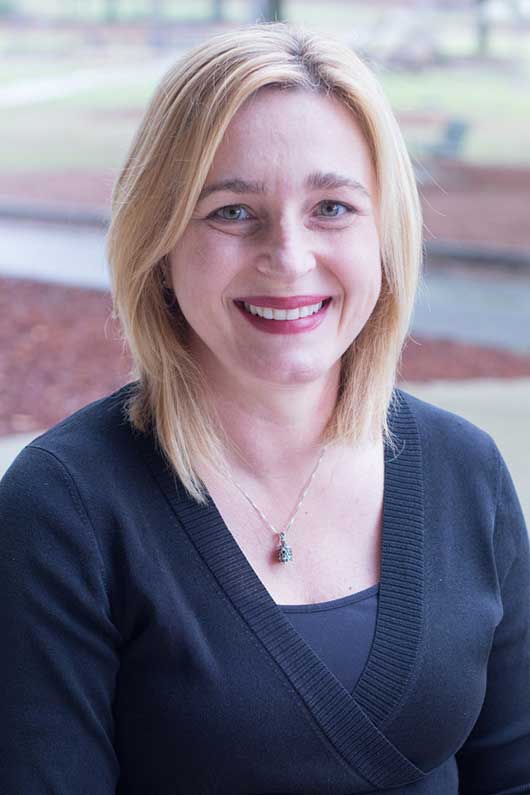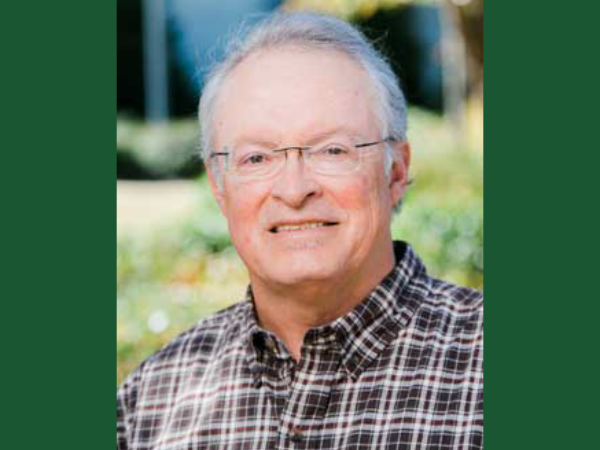After Laurel Hitchcock, Ph.D., associate professor in the University of Alabama at Birmingham’s Department of Social Work, graduated with her Bachelor of Arts in Psychology and Social Welfare from the University of Wisconsin in 1991, she joined the Peace Corps as a volunteer. She served two years in Senegal, West Africa, and, when she returned home to the Midwest, she wanted to further expand her knowledge of public health. While exploring graduate school options, she found UAB and developed an interest in the young university.
 Laurel Hitchcock, Ph.D.“UAB is a top-notch public health program,” said Hitchcock. “I fell in love with the University and the state.”
Laurel Hitchcock, Ph.D.“UAB is a top-notch public health program,” said Hitchcock. “I fell in love with the University and the state.”
Soon after discovering UAB, Hitchcock packed her things and moved to Birmingham. She earned a Master of Public Health from UAB, then continued her academic journey at the University of Alabama where she earned a Master of Social Work and a Ph.D. in Social Work.
While conducting research for her dissertation at UA, Hitchcock identified areas where both public health and social work intersect.
“I started off being very interested in historical research—social welfare policies—and the combination between social work and public health,” said Hitchcock.
This interest prompted a deeper connection to the field of social work. So, as Hitchcock entered the early days of her academic career, her research and teaching interests began to shift.
“Early on, I really got interested in how we train people to do really difficult helping professions,” said Hitchcock. “My research is about training the best social workers we can. And, additionally, using new tools to do that… doing innovative things like simulations.”
As she continued to seek out innovative ways to train future social workers, Hitchcock found several opportunities to work with UAB, including as an adjunct instructor and a team member for the Center for Clinical and Translational Science. Through these relationships and experiences, she formed a deep connection to the institution and, eventually, moved into a full-time faculty role with the Department of Social Work in the College of Arts and Sciences in 2013.
When she arrived at UAB as a faculty member, she brought a valuable partnership with her. Prior to joining the Department of Social Work, Hitchcock frequently worked alongside Alabama Possible, a statewide nonprofit organization that breaks down barriers to prosperity through education, collaboration, and advocacy. Hitchcock was (and continues to be) a strong advocate for the organization’s Community Action Poverty Simulation (CAPS).
“They were using poverty simulations to educate professionals in the community,” said Hitchcock. “When I came to UAB… I connected Alabama Possible with my colleagues, and we thought, ‘Let’s do some of these simulations! We should be doing this with students before they become professionals.’”
The Missouri Community Action Network created CAPS, and Alabama Possible describes the simulation in the following way:
[A] unique, interactive experience that helps facilitate understanding of the challenges faced by individuals in our community who are living at or below the poverty level. The simulation increases participants’ understanding of hardships and the emotional toll experienced by impoverished members of our society and the work it takes to achieve self-sufficiency.
During the simulation, participants role-play the lives of families living at or below the poverty level. Participants will experience typical challenges faced by individuals living in the context of constrained financial circumstances including maintaining employment, caring for children or elderly family members, seeking public assistance, and dealing with transportation issues.
After partnering with Alabama Possible on poverty simulations during her first year at UAB, Hitchcock—and her colleagues from the School of Nursing—decided it would be wise to build internal capacity to facilitate future experiences at the university. Also, they wanted to ensure they were achieving specific learning outcomes for students.
These goals sparked campus-wide partnerships with the School of Nursing, the Center for Interprofessional Education and Simulation, the School of Dentistry, the Heersink School of Medicine, the School of Optometry, the School of Health Professions, the School of Public Health, the African American Studies Program, and the Department of Criminal Justice. According to Hitchcock, these partners—including students and faculty—came together because they recognized the experience(s) can prompt people to think about poverty as a systematic problem that needs to be addressed by everyone.
Now, over six years later, hundreds of students participate in the simulations across campus each year. Also, dozens of faculty and staff members volunteer their time to facilitate the experiences and participate in conversations with each other (and students) afterwards. For Hitchcock, the growth has been inspiring and has influenced her scholarly work.
“It’s a nice trajectory for how an academic can use a community partnership to create a body of peer-reviewed work,” said Hitchcock. “I have six peer-reviewed articles from the work of the poverty simulations—all done, of course, in collaboration with others.”
These publications examine a number of topics related to the poverty simulations, ranging from the overall of structure of the experiences to the impact on students. Most recently, Hitchcock and several of her colleagues conducted a comprehensive reflection on the simulations, which led to two articles that were published in the Journal of Health Communication in 2021.
According to Hitchcock, “These two articles are an accumulation of all the work and really help tell the story of why we should do poverty simulations in higher education.”
Thankfully, Hitchcock and her collaborators identified a way to continue these valuable simulations during the COVID-19 pandemic. Now, the experiences are offered virtually through a platform called Spent, which was developed by Urban Ministries of Durham. This pivot embodies Hitchcock’s own teaching philosophy, which is ever evolving and flexible.
“My teaching philosophy is dynamic—we do have to pivot a lot. Especially given recent events,” said Hitchcock. “My most recent pivot in my teaching philosophy has been around trauma-informed teaching and really trying to bring my understanding that our students are going through traumatic experiences, just like everybody else, so how can we bring that into our teaching with students.”
It’s an approach that is rooted in active listening, empathy, and, in some instances, service learning—all themes that Hitchcock has embodied throughout her academic career.


